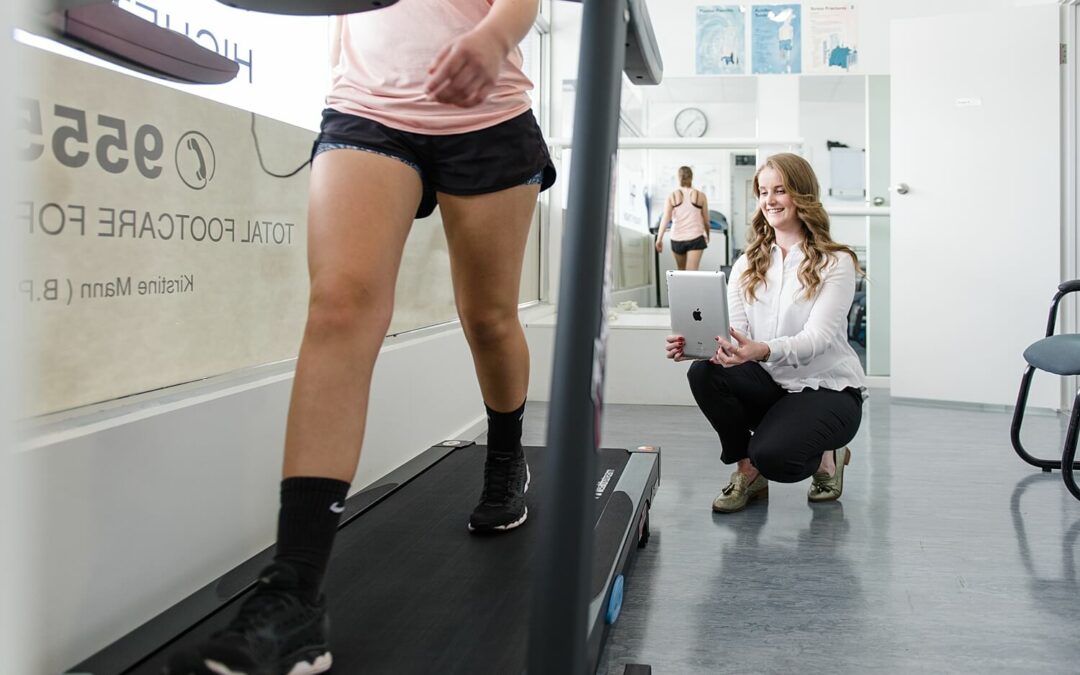The lifespan of orthotics can vary depending on several factors, including the materials’ quality, how often they are worn, the type of activities you engage in, and your body weight.
Orthotics can last anywhere from 1 to 5 years or more on average.
Here are some considerations:
- Material Quality: High-quality orthotics made from durable materials last longer than cheaper, lower-quality ones.
- At Highett Podiatry, we use the highest quality materials from the “top of the range” laboratory, Footwork.
- The nylon shell has a lifetime warranty.
- Frequency of Use: If you wear your orthotics daily, they may wear out more quickly than occasional use.
- Activity Level: If you engage in high-impact activities like running or sports, your orthotics may wear out faster than if you use them for everyday walking.
- Body Weight: Heavier individuals may put more stress on their orthotics, potentially causing them to wear out faster.
- Maintenance: Proper care can extend the life of your orthotics. Regularly cleaning them and inspecting for signs of wear can help identify issues early.
- Changes in Foot Structure: If your foot structure changes over time, you may need new orthotics to accommodate these changes.
- In most instances, orthotics don’t wear out; they become obsolete due to the changes in foot structure and function.
- Orthotics can be modified, and replacement covers can be put on them to increase the lifespan of the orthotic device.
- Growth –orthotics must be replaced if a child grows out of them.
- In most cases, orthotics will last a full two sizes of growth, generally equating to two years.
It’s essential to follow your podiatrist’s recommendations for orthotic replacement. They may suggest periodic check-ups to assess the condition of your orthotics and determine if they need to be replaced or adjusted. Suppose you notice signs of wear and tear, discomfort, or a decrease in their effectiveness. In that case, it’s a good idea to consult with your podiatrist for an evaluation and potential replacement.
How often should I get my orthotics checked?
The frequency at which you should get your orthotics checked can vary depending on your individual needs, the type of orthotics you have, and any changes in your foot health or comfort. However, here are some general guidelines to consider:
- Initial Follow-up: After receiving your orthotics, at Highett Podiatry, we recommend an initial follow-up appointment within four to six weeks to assess how well the orthotics are working for you and make any necessary adjustments.
- Annual Check-ups: An annual check-up with your podiatrist is a good practice for many people. This allows them to evaluate the condition of your orthotics, assess your foot health, and make any needed modifications to ensure they continue to provide the proper support.
- Changes in Foot Health: If you experience any changes in your foot or lower limb health, such as increased pain, discomfort, or changes in your gait, you must schedule an appointment with your healthcare provider promptly. They can determine if adjustments to your orthotics are necessary or if you need a new pair to accommodate any changes in your foot structure.
- Signs of Wear and Tear: Regularly inspect your orthotics for signs of wear and tear. If you notice visible damage, such as cracks or excessive wear on the surface, it’s a good indicator that you should have them checked sooner than your scheduled annual appointment.
- Lifestyle Changes: If you make significant changes in your activity level, such as taking up a new sport or physical activity, it may be a good idea to assess your orthotics to ensure they are still suitable for your needs.
Remember that everyone’s needs are different, so it’s important to follow the specific guidance provided by your healthcare provider or podiatrist regarding the timing of orthotic check-ups and replacements. Regular maintenance and monitoring of your orthotics can help ensure they provide the support and comfort you need for your feet.
Will I always need to wear orthotics?
Whether you will always need to wear orthotics depends on your foot condition, treatment plan, and any changes in your foot health over time. Here are some considerations:
- Underlying Foot Condition: If you have a chronic foot condition, such as flat feet, plantar fasciitis, or overpronation, that necessitates the use of orthotics to provide proper support and alleviate discomfort, you may continue to benefit from orthotics for the long term.
- Treatment Goals: Your need for orthotics may be linked to specific treatment goals. For example, if you use orthotics to address pain or alignment issues, your healthcare provider may recommend them as a long-term solution to help manage those symptoms.
- Lifestyle and Activity Changes: Changes in your lifestyle or physical activities may impact whether you need orthotics. If you adjust your exercise regime, suffer from a new lower limb injury, change footwear, or experience changes in body weight, your orthotic needs may evolve. You may still need orthotics in some cases, but they may need to be adjusted or replaced to accommodate these changes.
- Foot Health Progress: In some cases, with proper care, exercises, and physical therapy, individuals may experience improvements in their foot health that reduce their reliance on orthotics over time. Your healthcare provider can assess your progress and determine if you can gradually reduce or discontinue orthotic use.
- Preventative Use: Some people use orthotics preventatively to support their feet and lower limbs, even if they don’t have a specific foot condition. In these cases, you may continue to use orthotics as a proactive measure to maintain comfort and alignment.
Whether you will always need to wear orthotics should be made in consultation with your healthcare provider, such as a podiatrist or orthopaedic specialist. They can assess your circumstances, monitor your foot health, and provide guidance on the appropriate use of orthotics based on your specific needs and goals. Suppose you are considering discontinuing the use of orthotics. In that case, it’s crucial to do so under the supervision and guidance of a healthcare professional to ensure it’s safe and appropriate for your situation.

